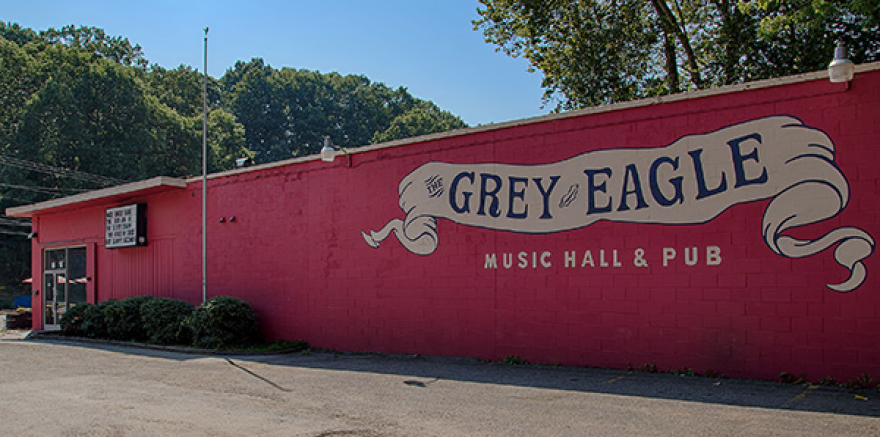When businesses began closing because of the Coronavirus, the owners of High-Five Coffee in Asheville set up a Venmo account for anyone who wanted to support the laid-off staff.
“The first week was great. We probably had $1,400 or so come in, which was really awesome, but you split that between 20 people, it spreads out thin pretty quickly,” said Jay Weatherly, who, with his wife, owns Asheville’s three High-Five shops.
“Much as we want to say, ‘Great, if you want to continue to give to our staff,’ there’s also the reality of most everybody you look at it is in an economic state of despair much more than they were before,” he added.
Along with artists and others in the gig economy asking for support online, many for-profit businesses are, for the first time, asking customers and fans for direct financial support.
The Carolina Theatre and Pack's Tavern in Asheville and Stoney Knob Cafe in Woodfin have each set up GoFundMe pages. The Grey Eagle has a donations page on its website. So do the Bull and Beggar Restaurant in the River Arts District and OWL Bakery. There’s even a website where people can donate to a randomly selected out-of-work service worker.
And since making an appeal to readers during the Coronavirus, the publishers of weekly newspaper Mountain Xpress say they’ve quadrupled membership and attracted more than $10,000 in support.
“We’re just making our community aware of the situation,” said Virginia Daffron, managing editor of Mountain Xpress. “And we’re letting them know if you want to have Mountain Xpress part of this community, we need your help.”
This influx competing for individual generosity is a new strain on nonprofit organizations dependent year-round on direct financial support.
“Individuals are struggling to figure out their own personal financial situation and, really, almost every organization (is) needing additional support right now.” said David Heinen, vice president for public policy and advocacy with the North Carolina Center for Nonprofits, in Raleigh. “So between those two factors, it is definitely creating a real challenge.”
But Jeanette Butterworth, a senior consultant with WNC Nonprofit Pathways of Asheville, said nonprofits are positioned well to survive during and after the pandemic by leaning on their strengths.
“Nonprofits all along and every single day are out there creating relationships that are going to help sustain folks through this time,” she said. “Givers give, so seven out of 10 people in the United States give money away, and those seven out of 10 people are going to continue to give to the organizations that they’re part of, that they have relationships with. That’s not going to change.”
Heinen is pointing nonprofits to governmental programs such as a new small business administration loan, created during this pandemic, to cover payrolls through June. Mountain BizWorks has also launched a COVID-19 Rapid Recovery Loans program.
“For the short-term, organizations that are not panicking initially,” Heinen said. “That is a real game-changer, I think, because it does provide them the capital they need through those fully forgivable loans to continue operating for a few months.”
While the longterm impact of the Coronavirus on nonprofit fundraising can’t be known, Butterworth urged nonprofits to lean into donor relationships without treating those donors as financial faucets. Experts expect the clarion call for cash to only grow while public life remains closed for business.
“Nonprofits and for-profits, we’re all businesses, we’re all working to make our society run,” Butterworth said. “The nonprofit sector is resilient and we will come out on the other side of this as a different sector, better, stronger, having new ways of working, having new plans in place.”






